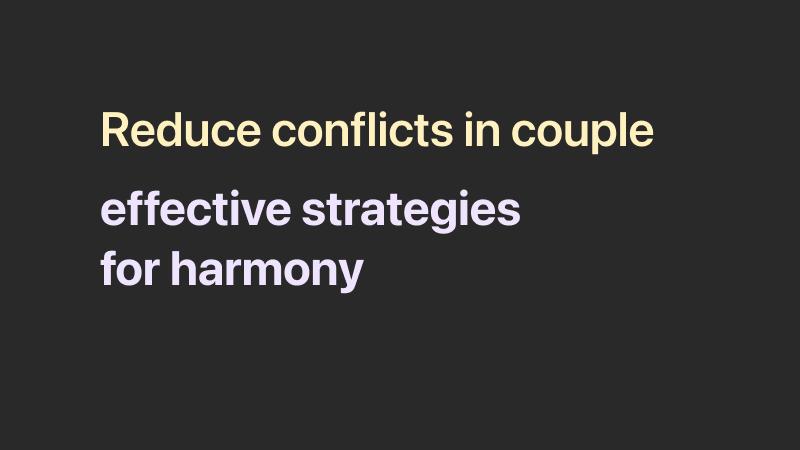Conflicts are inevitable in any relationship, but how they are managed can significantly affect the relationship's health. By adopting specific strategies, couples can reduce the frequency and intensity of conflicts, fostering a more harmonious connection.
1. Effective Communication: Open and honest communication is crucial. Listen actively and express your feelings and thoughts clearly without blaming or criticizing your partner.
2. Practice Empathy: Try to understand your partner’s perspective. Empathy involves recognizing their feelings and experiences, which can lead to more compassionate interactions.
3. Establish Boundaries: Setting clear boundaries regarding acceptable behavior and personal space helps prevent misunderstandings and conflicts.
4. Use “I” Statements: Express your feelings and needs using “I” statements instead of “you” statements to avoid sounding accusatory. For example, say, "I feel upset when..." instead of "You always...".
5. Schedule Regular Check-Ins: Regularly discussing your relationship status and any brewing issues can prevent minor disagreements from escalating into significant conflicts.
6. Seek Professional Help: If conflicts become overwhelming, seeking help from a relationship counselor can provide valuable tools and perspectives to manage disputes effectively.
Conclusion: By incorporating these strategies, couples can significantly reduce conflicts and build a stronger, more understanding relationship. Continuous effort and mutual respect are key to maintaining harmony.
5 Questions for Self-Reflection:
- How effectively do I communicate my feelings and needs to my partner?
- Am I actively listening to my partner’s concerns and perspectives?
- What boundaries can we establish to reduce misunderstandings?
- How often do we check in on our relationship and address issues?
- When conflicts arise, am I open to seeking external help if needed?




